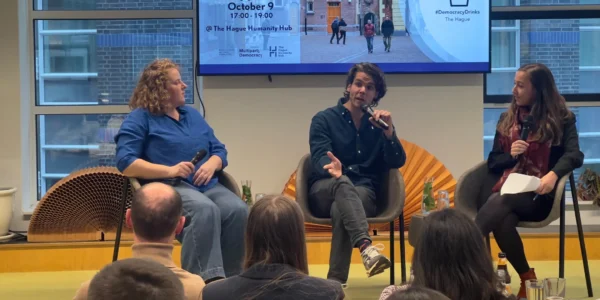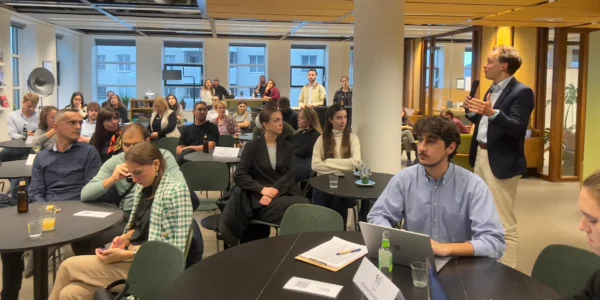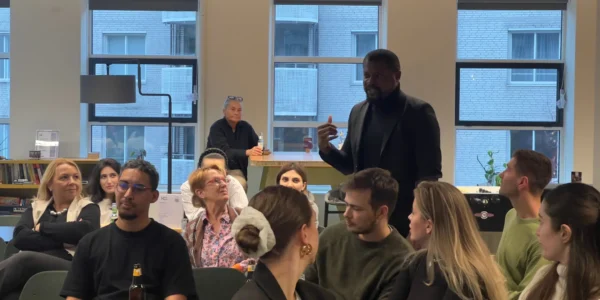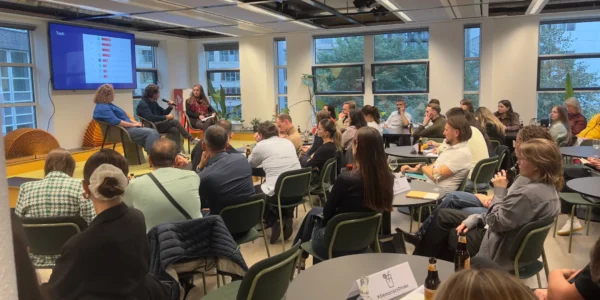On October 9th, democracy advocates and enthusiasts gathered at The Hague for #DemocracyDrinks – an ongoing collaboration between the Netherlands Helsinki Committee (NHC), the Netherlands Institute for Multiparty Democracy (NIMD), and The Hague Humanity Hub (THHH). In this edition, titled “Wiser about Democracy”, panelists Bram van Montfoort (Netherlands Democracy Coalition) and Yasmin Haloui (Human Security Collective), along with moderator Aicha Chaghouani (NHC) discussed avenues for dialogue and tools for engagement, against the backdrop of the upcoming Dutch legislative elections on October 29th.
The deteriorating state of democracy
Democracies are deteriorating worldwide, and as Bram pointed out, autocrats are receiving increasing approval in Europe. “It’s also about culture,” added Yasmin, reminding the audience that there is a crisis in democratic literacy. Citizens understanding politics, recognising false promises, and knowing when policies erode democratic checks and balances is key to democracy defence.
The role of youth
Citing her experiences working at the Human Security Collective, Yasmin argued that “youth are not a monolithic group, but when you give them space to lead, they come up with good, inclusive solutions” to deal with political problems.

“Perhaps an important lesson for Dutch politics is that young people expect to be listened to.”
On the other hand, Bram warned that the easiest way to engage youth is via polarising short-form content on social media, which autocratic forces are already taking advantage of.
“If you could introduce one systemic change to Dutch politics, what would it be?”, Aicha prompted the panelists. While acknowledging that just one change is not enough, Yasmin urged Dutch voters to be more critical, without taking democracy for granted. Bram echoed that sentiment, adding that it is crucial for politicians to place more trust in citizens.
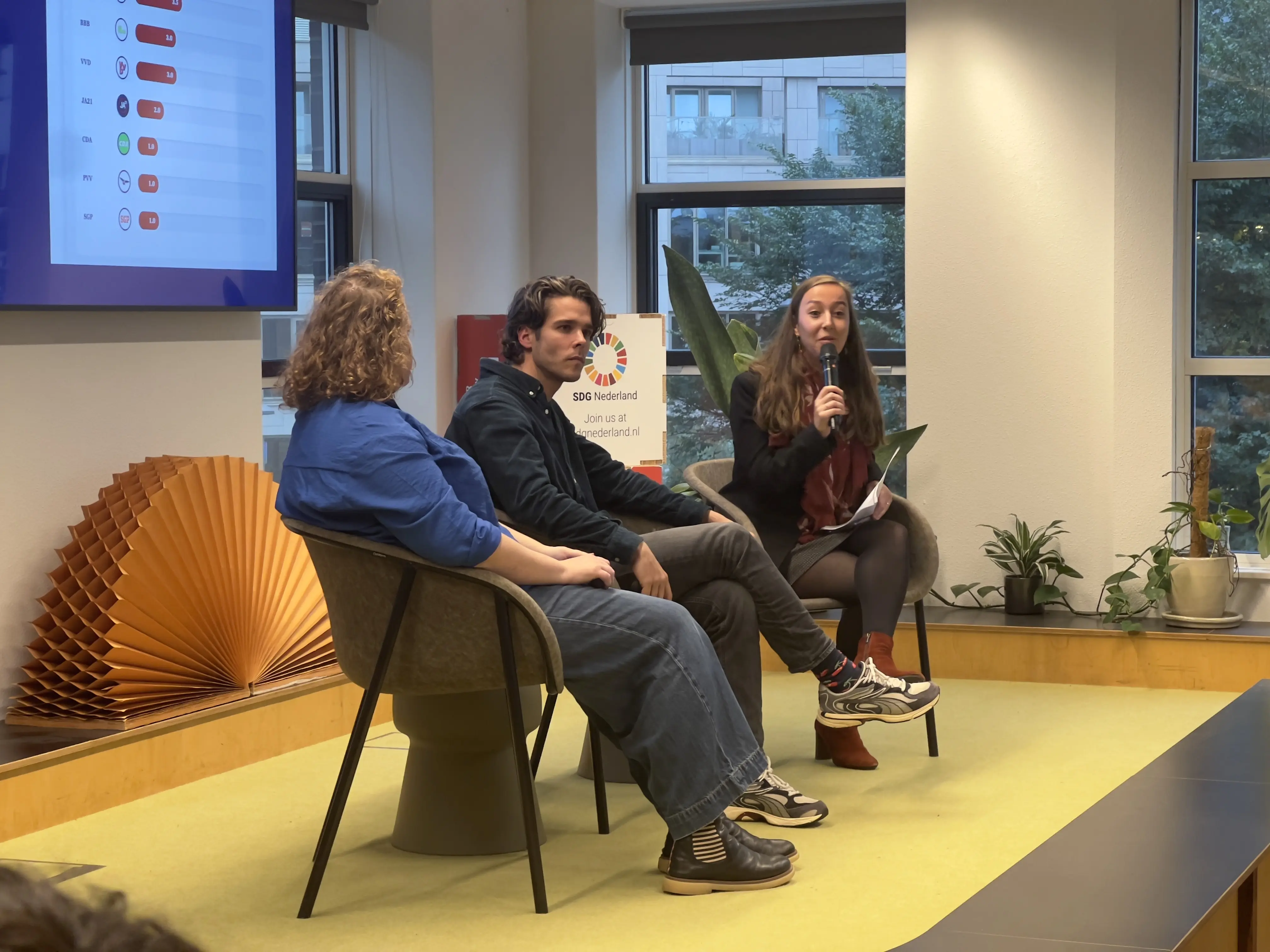
DemocratieWijzer: A Tool for Political Awareness
While tools that guide voters on their compatibility with parties’ views are popular in the Netherlands, they often ignore questions around parties’ commitment to democracy and the rule of law. The session was an opportunity for attendees to learn about the DemocratieWijzer, a tool created by the Netherlands Democracy Coalition to score political parties across several indicators like press freedom, authoritarianism and adherence to the rule of law, highlighting deficiencies in their constitutional commitments. While presenting the tool, Bram warns:
“Ultimately, democracy is more than just what 50% of the population wants. Without a complete preservation of all its elements, a liberal democracy becomes hollow.”

In the end, one in three Dutch parties does not meet the bare minimum democratic criteria. Yet we must not assume that such tendencies only exist in the far-right – mainstream parties such as Democrats-66 also present deficiencies in certain indicators. “We hope some people get angry with these results,” said Bram. “This way, we might get them to listen.”
Key takeaways
Most parties discuss democracy and fundamental rights in their pre-election programmes, but propose minimal concrete steps to protect them.
We live in the era of polarisation, and this is largely driven by a lack of democratic literacy, leaving people vulnerable to online radicalisation.
A key democratic element is retreating from Dutch politics: listening to the people, and in turn translating their concerns into concrete change.
There is a “lack of fire” when discussing democracy in the Netherlands. For too long we have been taking things for granted, without any sense of urgency.
Ready to take action to defend your democracy? Visit the DemocratieWijzer to see how your preferred political parties stack up on democratic indicators.
Join our next edition of #DemocracyDrinksTheHague
